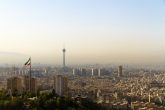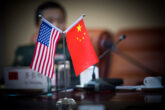May 08, 2018
The Trump Administration's Policy Toward Taiwan
Less than a month after the November 2016 election and several weeks before Donald Trump’s inauguration, U.S. policy toward Taiwan faced an early defining moment. On December 2, thepresident-elect received a congratulatory phone call from Taiwan’s president Tsai Ing-wen. The first direct presidential communication since 1979, the telephone connection appears to have been carefully orchestrated. The next week Trump said he was reconsidering the 40-year-old “one China” policy built on three U.S.-China joint communiqués, the Taiwan Relations Act, and other major policy statements. Yet in his first official phone call with China’s leader, President Trump reassured President Xi Jinping that the United States remained committed to the one-China policy. These early muscle movements of Taiwan policy revealed some of the characteristic negotiating tactics of both the author of The Art of the Deal and the Chinese government. President Trump, seeking to improve his bargaining position over Taiwan, provoked an early test with Beijing to announce that the United States would henceforth be less predictable than in the past. Meanwhile, China made clear that the only sure path to fruitful cooperation would require strict adherence to Chinese principles. These moves presaged future tension and competition, given that the Trump administration had every intention to seek peace but prevent coercion against the people of Taiwan: in other words, the new president accepted the one-China policy of the United States and not the one-China
Read the Full Article at NBR
More from CNAS
-
“The Ayatollah Has No Clothes” – with Rich Goldberg and Richard Fontaine
Richard Fontaine is CEO of the Center for American Security, joins Call Me Back to assess the threat FROM Iran and the threat TO Iran. Listen to the full episode on Call Me ...
By Richard Fontaine
-
Lost Decade - The U.S. Pivot to Asia and the Rise of Chinese Power with Richard Fontaine
Richard Fontaine, CEO of the Center for a New American Security, joins Coffee & Conflict to discuss his book The U.S. Pivot to Asia and the Rise of Chinese Power. He dives int...
By Richard Fontaine
-
Sharper: Allies and Partners
Amid intensifying geopolitical challenges, the United States is finding new ways to address security issues by cultivating and strengthening alliances and partnerships. How ca...
By Gwendolyn Nowaczyk & Charles Horn
-
What Can the US Expect From Sri Lanka’s New President?
Washington views Sri Lanka as a “lynchpin” of its Indo-Pacific strategy and seeks a partner committed to strengthening the democratic process and economic governance while pro...
By Keerthi Martyn




